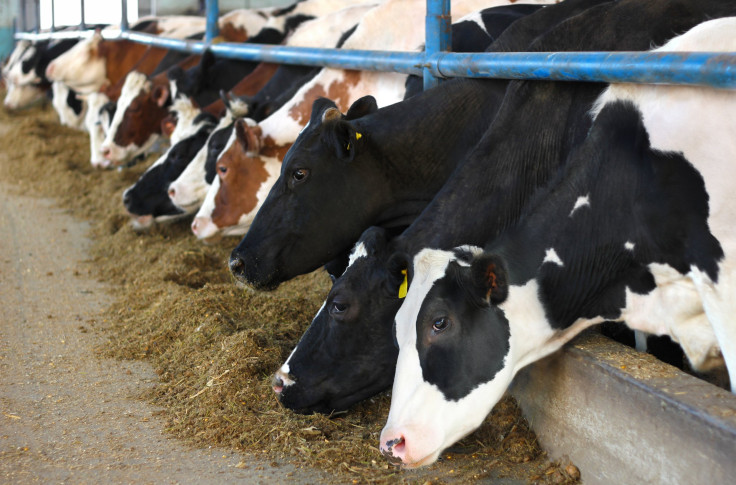FDA Allowed ‘High Risk’ Antibiotics To Be Used In Farm Animals, Despite Danger To Humans

Bacteria that develop immunity, or resistance to, antibiotics are growing in number, and have become a looming health threat. Now a new report claims that the Food and Drug Administration (FDA) has allowed the use of such “high risk” antibiotics in livestock feed, even though research has shown that these drugs could be harmful to humans in the long run by exposing them to antibiotic-resistant bacteria through food.
Between 2001 and 2010, the FDA tested some 30 antibiotics that have been used in animal feed and ranked them based on their level of risk to human health. Eighteen of these additives were considered “high risk,” according to information obtained by the Natural Resources Defense Council (NRDC), the health and environmental advocacy group that released the report. Though the FDA found that these antibiotics used in livestock feed were in fact dangerous, they continued to allow their use, the NRDC stated.
“[The FDA is] not meeting their responsibility to protect public health,” Avinash Kar, an NRDC lawyer, told The Washington Post. “They need to be doing better.” According to the report, some 26 feed additives did not meet FDA standards that required companies to prove antibiotics being used for “nontherapeutic use” were safe through scientific studies. Nontherapeutic use refers to antibiotics that are used to promote growth or prevent diseases in livestock and poultry. The FDA’s lack of regulation for such additives is “a breach of their responsibility and the public trust,” Carmen Cordova, an NRDC microbiologist and lead author of the report, told the Washington Post.
The report is yet another addition to the growing concern of antibiotic resistance, a public health issue that causes about 23,000 deaths per year. Due to frequent use and abuse of antibiotics — as well as the fact that these drugs are used in animals — bacteria are more likely to develop resistance to them, gradually rendering these drugs ineffective. A simple infection that could once be treated quickly and thoroughly with antibiotics may now become a potentially a life-threatening problem.
“Unfortunately, the FDA’s failure to act on its own findings about the 30 reviewed antibiotic feed additives is part of a larger pattern of delay and inaction in tackling livestock drug use that goes back four decades,” the authors of the report wrote. In the report, they suggest the next steps the FDA ought to take in order to begin remedying the situation: first, to “complete the decades-delayed process” for removing penicillin and tetracyclines in animal feed and limiting their use in sick animals; secondly, to withdraw approval for all other “medically important” antibiotics that have been used for nontherapeutic reasons — if they have not been shown to be safe.
Reports have shown that 80 percent of antibiotics in the U.S. are used for farm animals rather than humans, and the Centers for Disease Control and Prevention has recently released warnings about the possibility for a major public health problem. A CDC report published last year, Antibiotic resistance threats in the United States, 2013, reviewed the threats of antibiotic resistance, noting that 2 million people become infected with antibiotic-resistant bacteria per year.
"Resistant bacteria can contaminate the foods that come from those animals, and people who consume these foods can develop antibiotic-resistant infections," the CDC report said. "The use of antibiotics for promoting growth is not necessary, and the practice should be phased out."
Last year, the FDA did make moves to begin to rule out antibiotics use in cows, pigs, and chickens. "In December 2013, the FDA began formal implementation of a strategy to phase out the use of all medically important antimicrobials," the agency said in a statement. "The FDA is confident that its current strategy to protect the effectiveness of medically important antimicrobials, including penicillins and tetracyclines, is the most efficient and effective way to change the use of these products in animal agriculture." But Kar and the NRDC believes the the federal agency still has quite a way to go.
Published by Medicaldaily.com



























